
Fan Motors: From HVAC Systems to Renewable Energy Storage
2023-07-19 | Fan Motor
Welcome to our blog, where we dive into the fascinating world of fan motors and their crucial role in various applications, including HVAC systems. Fan motors are the powerhouse behind fans, enabling efficient air circulation, temperature control, and heat exchange. In this article, we will explore different types of fan motors, their benefits, and their applications in cooling and ventilation systems. Additionally, we'll discuss their application in renewable energy storage, such as wind-cooled container energy storage stations.

What are Fan Motors?
Fan motors are devices that utilize electricity to spin fans, generating airflow for heat exchange and temperature regulation. In refrigeration and HVAC systems, fan motors play a vital role in ensuring proper air circulation and ventilation, maintaining a comfortable indoor environment.
Types of Fan Motors and Their Advantages:
1. AC Fan Motors:
AC fan motors are widely used in refrigeration and HVAC systems, operating with the standard electrical supply found in most buildings. These motors are renowned for their reliability and cost-effectiveness, making them a popular choice for residential and commercial applications.
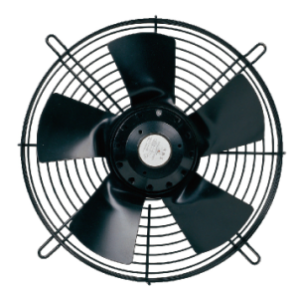
Advantages:
2. EC Fan Motors:
EC fan motors are more advanced and energy-efficient compared to AC motors. They operate using direct current (DC) and incorporate electronic controls, enabling precise control of speed and airflow. EC fan motors are commonly found in applications that require accurate airflow management, such as data centers and high-performance HVAC systems.
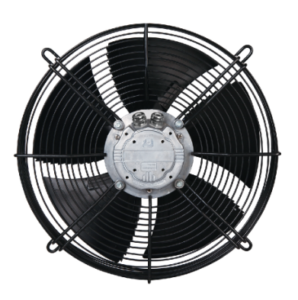
Advantages:
3. Axial Fan Motors:
Axial fan motors are a common type of fan used in applications where airflow needs to move parallel to the motor shaft. They are often seen in cooling systems for electronics, ventilation systems, and air purifiers.
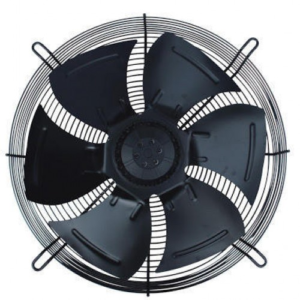
Advantages:
4. Centrifugal Fan Motors:
Centrifugal fan motors generate airflow in a direction perpendicular to the motor shaft. This allows them to produce higher pressure compared to axial fan motors, making them suitable for moving air through ducts or overcoming resistance found in HVAC systems and industrial ventilation.
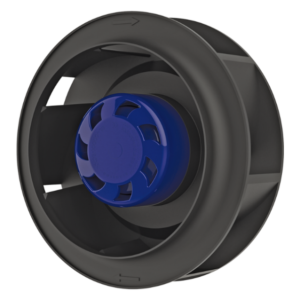
Advantages:
5. Crossflow Fan Motors:
Crossflow fan motors have a unique design where the airflow is generated perpendicular to the motor axis. These fans are often used in applications such as air curtains, air dryers, and heating systems.
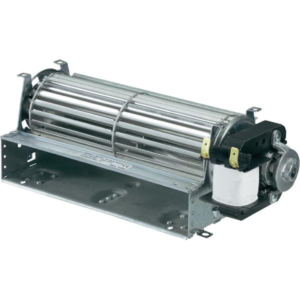
Advantages:
Applications of Fan Motors:
1. Air Conditioners:
Fan motors power the fans inside air conditioners, circulating conditioned air throughout rooms. They work in conjunction with compressors and condensers to maintain comfortable indoor temperatures.
2. Refrigerators and Freezers:
Fan motors are essential components in refrigeration systems. They cool the condenser coils, preventing excessive heat buildup and ensuring optimal performance of refrigerators and freezers.
3. Ventilation Systems:
HVAC systems rely on fan motors to circulate and ventilate air. By removing stale air and introducing fresh outdoor air, fan motors help create a healthier and more pleasant indoor environment.
4. Heat Pumps:
Fan motors play a vital role in heat pump systems, which provide both cooling and heating. These motors facilitate efficient heat exchange by circulating air over the evaporator and condenser coils, enabling the transfer of heat between spaces.
5. Wind-Cooled Container Energy Storage Stations:
In the realm of sustainable development, fan motors find application in wind-cooled container energy storage stations. These innovative stations harness wind energy to generate electricity, which is then stored in containers for later use. Fan motors in these systems play a crucial role in maintaining optimal temperatures within the containers. By utilizing airflow generated by fan motors, these stations ensure the efficiency and longevity of the energy storage systems, contributing to a greener and more sustainable future.
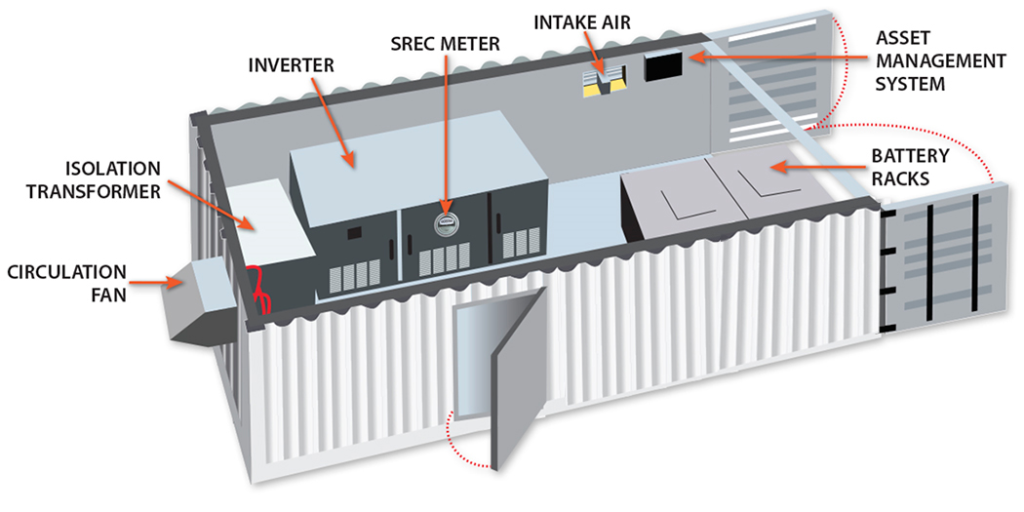
Conclusion:
Fan motors are indispensable components in refrigeration, HVAC, and various other systems. They enable efficient air circulation, effective heat exchange, and improved energy efficiency. AC fan motors offer reliability and cost-effectiveness, while EC fan motors provide energy savings and precise control over airflow. Moreover, fan motors play a crucial role in the development of renewable energy storage, such as wind-cooled container energy storage stations. These systems utilize fan motors to maintain optimal temperatures, ensuring the efficient and sustainable storage of wind-generated electricity.
If you require high-quality fan motors to enhance your refrigeration,HVAC systems and else, consider reaching out to PULITE Co., Ltd. Our company specializes in providing reliable and energy-efficient fan motor solutions for various applications. Contact us today at pulite@m168.com.tw.